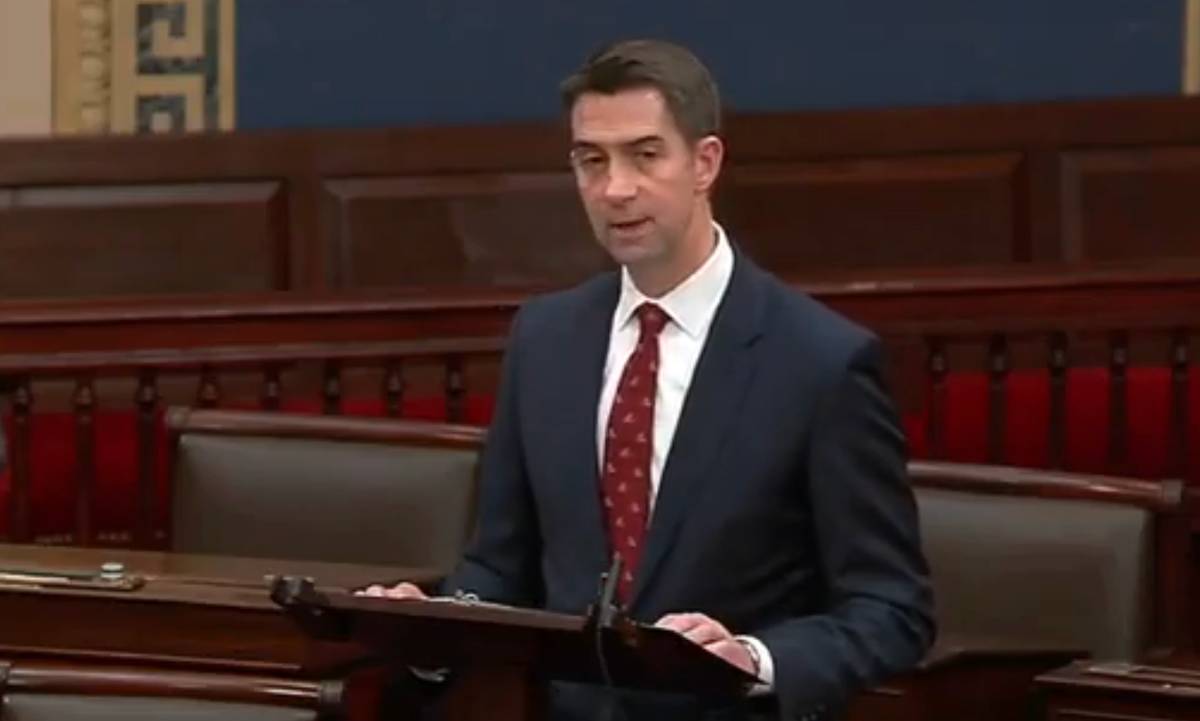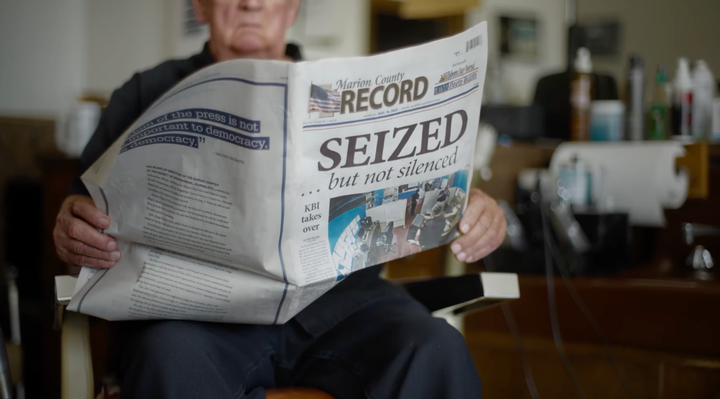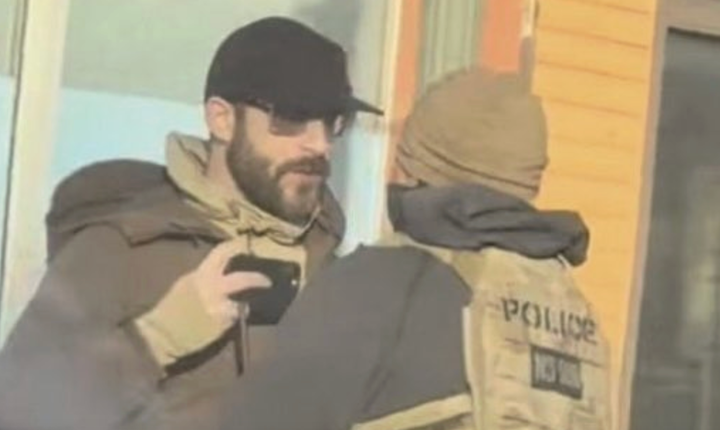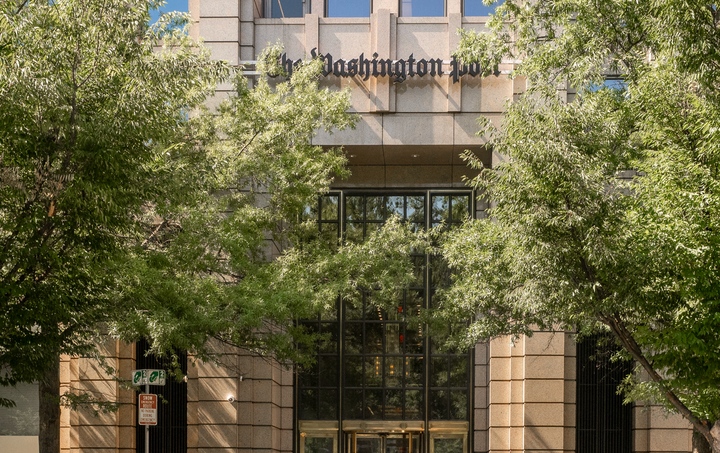US Senator Tom Cotton Lies About Reporter's Shield Law, Blocks Vote
Cotton is not sticking it to some “cabal of legacy media” but rather he is ensuring that the FBI and Department of Justice (DOJ) will continue to have an easier time targeting journalists

The following article was made possible by paid subscribers of The Dissenter. Become a subscriber and support independent journalism on press freedom, whistleblowing, and government secrecy.
Republican Senator Tom Cotton once again blocked bipartisan legislation that would protect reporters from harassment and interference by the United States government.
In particular, he fiendishly contended that passing the bill would “turn the United States Senate into the active accomplice of deep-state leakers, traitors, and criminals, along with the America-hating and fame-hungry journalists who help them out.”
Exploiting the record levels of distrust in the mass media among U.S. citizens, Cotton took to Twitter to falsely claim that the Protect Reporters from Exploitative State Spying Act, or PRESS Act, would create a “federally protected cabal of legacy media at a time when the people are becoming the journalists on platforms like X.”
But CNN, MSNBC, and The New York Times, as well as other “legacy media” that Cotton called out, do not need the PRESS Act as much as smaller news media outlets or independent reporters that primarily post to social media platforms. These organizations have legal departments that are experienced and funded to negotiate with government attorneys and help journalists and editors avoid government intrusion and violations of their First Amendment rights.
In that sense, Cotton is not sticking it to some “cabal of legacy media” but rather he is ensuring that the FBI and Department of Justice (DOJ) will continue to have an easier time targeting journalists who do not work as members of an elite media class.
The PRESS Act was re-introduced in 2023 after Cotton blocked the legislation in December 2022. It would “prohibit the federal government from compelling journalists and providers of telecommunications services to provide information identifying a source or any other record obtained or created by journalists in the course of their work,” according to a House Judiciary Committee report.
It is, as bill sponsor and Democratic Senator Ron Wyden said, “written to complement the First Amendment’s Constitutional protection for journalists.” It broadly protects the act of journalism instead of specific types of journalists.
Those considered “covered journalists” can be anyone who “regularly gathers, prepares, collects, photographs, records, writes, edits, reports, investigates, or publishes news or information that concerns local, national, or international events or other matters of public interest for dissemination to the public.”
In 2006, when Cotton was a U.S. Army lieutenant deployed to Iraq, he wrote a letter to the New York Times and expressed his rage that journalists Eric Lichtblau and James Risen had reported on President George W. Bush’s unprecedented searches of international banking records in the “global war on terrorism.” The story raised key legal and Fourth Amendment-related privacy concerns that were insignificant to Cotton as he was more focused on killing anything that moved in Iraq.
Cotton declared, “I hope that my colleagues at the Department of Justice match the courage of my soldiers here and prosecute you and your newspaper to the fullest extent of the law. By the time we return home, maybe you will be in your rightful place: not at the Pulitzer announcements, but behind bars.”
He may be one of the only sitting U.S. senators who openly opposes publication of the Pentagon Papers. “During the Vietnam War, the New York Times published the Pentagon Papers in an effort to demoralize the American people and turn them against the war effort,” Cotton complained in 2022.
This time Cotton put more emphasis on the supposed “privileges, protections, or perks” that would be given to the “liberal media” if the PRESS Act passed. Evidently, there is a push among Trump associates and right-wing conservatives to attack freedom of the press by convincing Republican voters that it will only empower the media institutions that oppose Trump.
Trump promised in March 2023 that part of his agenda to “dismantle the deep state” will be to “launch a major crackdown on government leakers who collude with the fake news to deliberately weave false narratives and to subvert our government and our democracy. When possible, we will press criminal charges.”
Project 2025, a 900-page plan for Trump’s second term developed by the conservative Heritage Foundation, contains an agenda item that involves removing limits to the FBI and Justice Department’s ability to access journalists’ communications. (Several architects of this plan have been selected by Trump to fill “top positions” in his administration.)
While Cotton is holding up legislation that would revitalize First Amendment protections for newsgathering, a former Bush administration official named J. Christian Adams has been pushing a similar argument against the PRESS Act into the U.S. news media.
Adams maintains, like Cotton, that the shield law would give reporters more rights under the First Amendment than ordinary Americans. “It would allow them to withhold vital evidence of crimes, government corruption, and wrongdoings.”
He misleadingly insists that any reporter who wishes to publish classified information should “bear the risk of violating federal law,” when there is no law that explicitly makes it a crime in the United States to publish classified information, especially if there is no proof that the information would result in grave harm.
Adams is the president of the Public Interest Legal Foundation, a conservative outfit that is anti-democratically committed to lawsuits when cities like Detroit do not use their “questionable” data to purge voters. He is not someone who should be given an inch of space in a newspaper to masquerade as a steward of constitutional rights and the law.
Nevertheless, that is exactly what Adams and Cotton have done while Democratic Senate Majority Leader Chuck Schumer mount an eleventh-hour effort to pass the PRESS Act.
“The founding fathers designed the Senate to be the sober second thought of the House of Representatives or even transient and fleeting public opinion. The senator from Oregon [Ron Wyden] cited unanimous vote in the House. Sometimes that’s an indication of widespread support for a sound and wise policy,” Cotton stated. “But on occasion, it’s an indication that a rash, impetuous, hasty, impulsive decision by the House deserves a sober second thought in the United States Senate.”
“And not for the first time I am pleased to provide the sober second thought on this and other issues.”
Thanks, but no thanks. Just because a senator is not drunk while speaking from the Senate floor does not mean that they are sober.
In fact, Cotton’s Republican colleagues—Senators Lindsey Graham and Mike Lee—are far more sober on this matter than him, as they set aside their hostility to the “liberal media” and signed on as co-sponsors of the PRESS Act.
Graham has been in the U.S. Senate for two decades. He is always for the next war and as hellbent on propping up the military industrial-complex and expanding the national security state as Cotton. Yet Graham isn’t delivering Senate speeches that are filled with lies about how a reporter’s shield law will threaten national security.
As for Democrats, like Senate Majority Leader Chuck Schumer and Senate Judiciary Chair Dick Durbin, the House passed the PRESS Act in January. They had a little more than 10 months to bring this legislation up for a vote, and Democrats knew all along that Cotton would block it.
It should have passed well before Trump was elected to another term and on his way back to the White House. But President Joe Biden never endorsed the PRESS Act and now every legislative maneuver eats into time that the Democrats wish to use to confirm judges. Plus, there are year-end bills to fund the military and government that must be passed before this session of Congress ends.
When reporters are subpoenaed under Trump and have no recourse, Trump, Cotton, and their ideological partners will not be solely to blame. The Democrats will bear a lot of responsibility for leaving them vulnerable to attacks.




Comments ()